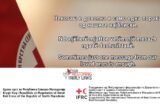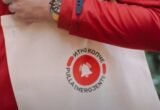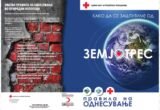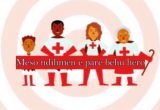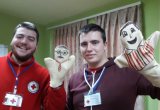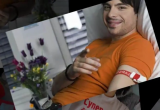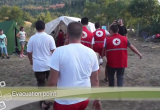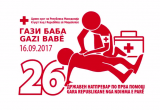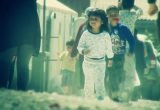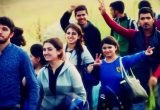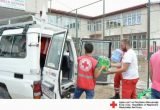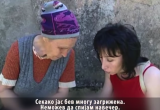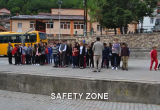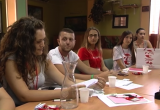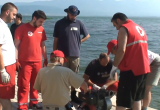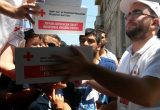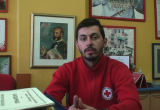
Opening of the Red Cross of the RNM Educational Training Center for adult training in Skopje
Let me thank you for your presence at today’s opening of the Red Cross of RNM Educational Training Center for Adult Training in Skopje. The Support for equipping and operating the center is provided by the Austrian Ministry of Labor, Social Affairs and Consumer Protection, for which I would like to express my sincere gratitude.
The Red Cross as an implementer of special programs for adult education verified by the Ministry of Education and Science, starting from 2017, continuously contributes to building the system of adult education in the country, and provides high quality of learning and opportunities for obtaining qualifications in accordance with the needs of the population.
Through the educational training centers of the Red Cross, special programs for non-formal education of adults are implemented for acquiring knowledge, skills and competencies and ensuring qualitative and competitive workforce on the labor market, which contributes to increasing employability, and thus contribution in the economic, social and personal development.
For five years in a row, the Red Cross of RNM continuously implements special programs for adult education that have been verified by the Center for Adult Education. In 2017, we started with the first training program for caregivers for older people, which resulted with 38 trained caregivers in Skopje. In 2018, through the City Red Cross of Skopje, we opened the Center Care, through which the trained caregivers started with delivery of home care services and assistance for older people.
Today we implement four verified special programs for caregivers for assistance and care for older people and people with disabilities, personal assistance for people with disabilities, palliative caregivers for frail people, and care givers for people with Alzheimer’s disease.
It is important to point out that the Red Cross of RNM, apart from Skopje, implements special programs in 16 municipalities in the country through the Red Cross educational training centers, of which 4 centers cover additional 8 municipalities or the trainings cover a total of 24 municipalities. The trainings are supported by Red Cross partners and donors: Austrian Red Cross, Austrian Development Agency, the Austrian Ministry of Labor, Social Affairs and Consumer Protection, UNDP, UNFPA, as well as trainings supported by the Employment Agency of RNM within the Active Employment Measures of the Government of RSM. This year, support was provided for the trainings by the Ministry of Labor and Social Policy, financed through the World Bank.
In the past period, until today, a total of 750 unemployed persons have been trained who have obtained a certificate for appropriate qualification (care givers, personal assistants). The trained persons at disposal for delivery of quality social services for the citizens – providing assistance and care to persons who due to age, chronic diseases, disability, and other reasons are in a state of exhaustion and inability to take care for themselves, as well as personal assistance to persons with disabilities in order to contribute to the independent living of persons with disabilities and their active and equal participation in the community and society as a whole.
With the support of the Ministry of Labor and Social Policy, the Red Cross of RNM delivers a free service for the older people and persons with disabilities through the Red Cross of the City of Skopje and 9 Red Cross branches in the country.
In order to be available to the general public, the Red Cross started providing care and personal assistance services to all citizens who can use it with payment of a fee, to ensure sustainable development of social services.
Finally, I would like to emphasize that if we want to provide quality social services for the older people, the frail, the disabled, we must hire caregivers and personal assistants who will be qualified to deliver the service to the beneficiaries. With an increased number of trained staff, the opportunities increase for reaching a larger number of citizens who will receive adequate care and assistance in their homes and in the community. On the other hand, we will make impact on several social benefits – the opportunity for the unemployed to gain qualifications and be more competitive in the labor market, employment benefits for the vulnerable population, and in particular, the delivery of quality social services will affects the improvement of the health and well-being of the citizens in the communities.


